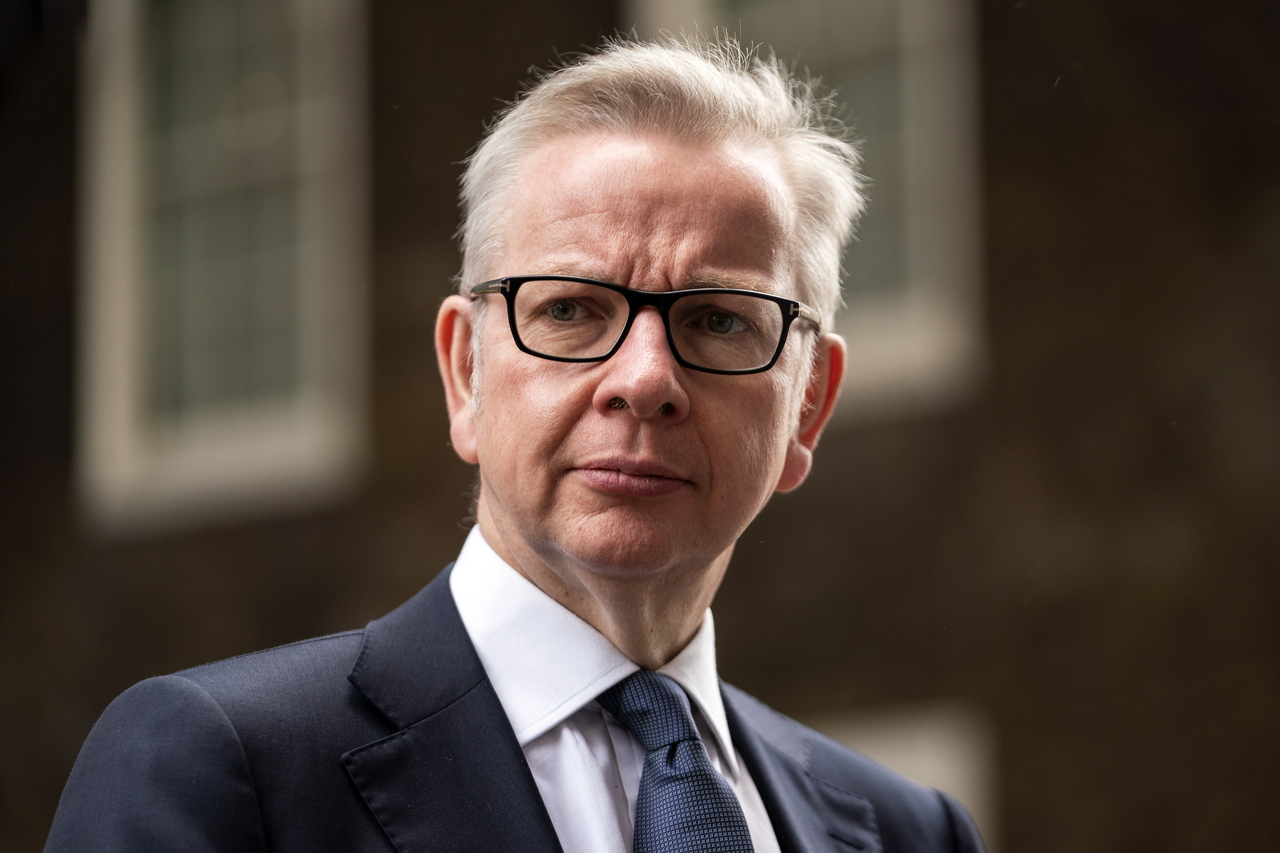Coronavirus pandemic
Britain's relations with China under pressure
Officials accuse Beijing of not being upfront in reports on coronavirus, urge rethink of ties
Sign up now: Get ST's newsletters delivered to your inbox

Senior minister Michael Gove openly blamed Beijing for complicating Britain's response to the pandemic.
PHOTO: EPA-EFE
Earlier this year, British Prime Minister Boris Johnson was prepared to risk a public confrontation with the United States by allowing Chinese telecommunications firm Huawei to supply parts of the backbone to Britain's telephony network.
But relations between Britain and China appear to have taken a nosedive, with senior minister Michael Gove openly blaming Beijing for complicating Britain's response to the coronavirus pandemic, while a group of leading MPs from the ruling Conservative Party is appealing to their government to consider a fundamental "reset" of Britain's relations with China.
Except for Mr Gove, who claimed in a recent TV interview that "some of the reporting from China was not clear about the scale, the nature and the infectiousness" of the coronavirus, no British minister has voiced opinions on the matter.
Indeed, Britain has gone out of its way to avoid a public spat with China. In common with France and Germany, British diplomats refused to insert in a recent communique by the Group of Seven most industrialised states any reference to the so-called "Wuhan virus", as the Americans had suggested.
Britain, one of the biggest funders of the World Health Organisation (WHO), also distanced itself from the Trump administration's move to stop funding the WHO.
"We believe the WHO plays an important role" in the global response to coronavirus, a spokesman for Prime Minister Boris Johnson said, in an explicit rebuke of US President Donald Trump's decision.
Yet below the official calm, there appears to be quite a bit of anger with China among officials in London. Many accuse Beijing of failing in its international obligations to report the start of the pandemic in a timely manner but also, allegedly, of deliberately misreporting the number of Chinese deaths from the Covid-19 disease.
British officials who declined to be named point to what they see as a statistical impossibility that China, whose health services were the first in the world to confront the virus at a time when few knew what it was and whose population is more than twice the size of the population of the European continent combined, still managed to report death numbers which are less than a quarter those recorded in a single European country such as Britain or France.
For British officials, the debates are not purely academic, for they claim that what they believe to be a deliberately understated reporting from China about both the scale and the lethal impact of the coronavirus had lulled the British authorities into a false sense of security at the start of the crisis, and may have delayed the adoption of appropriate measures.
Undoubtedly, there is an element of special pleading in such claims; the British government knows when the health crisis is over that there will be a number of inquiries into its preparedness, so it may suit officials to claim they are mere victims of disinformation by others.
And at least for the moment, both London and Beijing are keen to play down their differences.
Earlier this week, the Chinese embassy in London released a statement on its website which pointedly claimed that in a recent phone call with Chinese Foreign Minister Wang Yi, British Foreign Secretary Dominic Raab "fully agreed" with Beijing that the debate about the source of the virus was a "scientific issue that requires professional and science-based assessment".
Mr Wang was also quoted as saying he believed the UK would behave in an "objective and fair manner, and reject narrow-minded actions" such as those blaming China for the outbreak.
Nevertheless, the pressure to reconsider Britain's long-term relationship with China is growing. Ministers known to be China sceptics include Home Minister Priti Patel who also has responsibility for MI5, Britain's domestic intelligence agency, and Defence Minister Ben Wallace.
A group of prominent MPs which include many former government ministers recently wrote to Mr Johnson arguing that the UK should "rethink" its wider relationship with China. "We have failed to take a strategic view of Britain's long-term economic, technical and security needs," they go on to say.
Huawei is clearly alarmed by the prospect that further political pressure could mean a reversal of the British government's decision to allow the firm's products into the country's telecoms infrastructure.
Mr Victor Zhang, Huawei's vice-president, has written an open letter highlighting the great importance of mobile and online connectivity during the current coronavirus lockdown, and the role his company can play in satisfying growing demand for wireless communication services.
For the moment, Huawei's business appears to be safe.
But not the same can be said of Britain's broader relationship with China.


